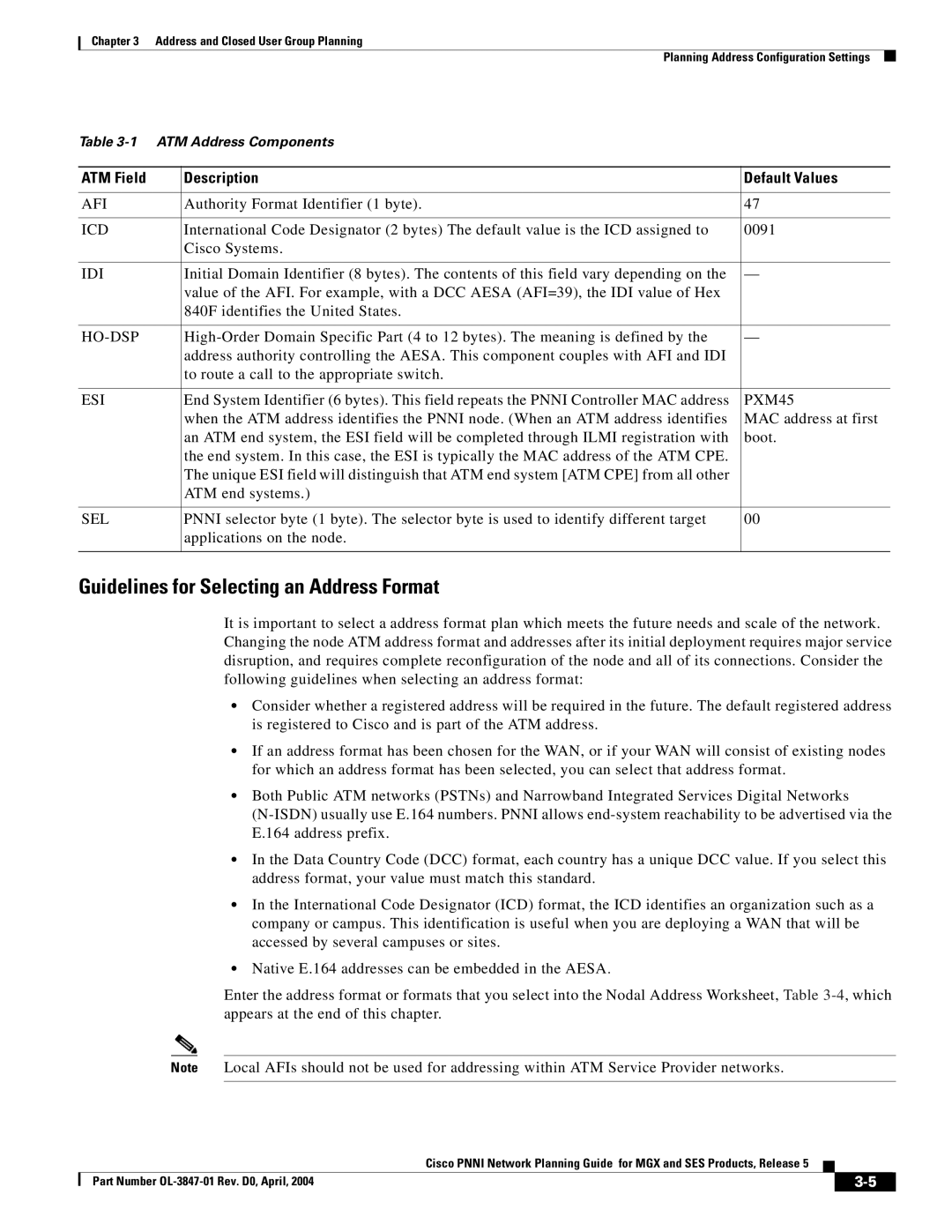
Chapter 3 Address and Closed User Group Planning
Planning Address Configuration Settings
Table
ATM Field | Description | Default Values |
|
|
|
AFI | Authority Format Identifier (1 byte). | 47 |
|
|
|
ICD | International Code Designator (2 bytes) The default value is the ICD assigned to | 0091 |
| Cisco Systems. |
|
|
|
|
IDI | Initial Domain Identifier (8 bytes). The contents of this field vary depending on the | — |
| value of the AFI. For example, with a DCC AESA (AFI=39), the IDI value of Hex |
|
| 840F identifies the United States. |
|
|
|
|
| — | |
| address authority controlling the AESA. This component couples with AFI and IDI |
|
| to route a call to the appropriate switch. |
|
|
|
|
ESI | End System Identifier (6 bytes). This field repeats the PNNI Controller MAC address | PXM45 |
| when the ATM address identifies the PNNI node. (When an ATM address identifies | MAC address at first |
| an ATM end system, the ESI field will be completed through ILMI registration with | boot. |
| the end system. In this case, the ESI is typically the MAC address of the ATM CPE. |
|
| The unique ESI field will distinguish that ATM end system [ATM CPE] from all other |
|
| ATM end systems.) |
|
|
|
|
SEL | PNNI selector byte (1 byte). The selector byte is used to identify different target | 00 |
| applications on the node. |
|
|
|
|
Guidelines for Selecting an Address Format
It is important to select a address format plan which meets the future needs and scale of the network. Changing the node ATM address format and addresses after its initial deployment requires major service disruption, and requires complete reconfiguration of the node and all of its connections. Consider the following guidelines when selecting an address format:
•Consider whether a registered address will be required in the future. The default registered address is registered to Cisco and is part of the ATM address.
•If an address format has been chosen for the WAN, or if your WAN will consist of existing nodes for which an address format has been selected, you can select that address format.
•Both Public ATM networks (PSTNs) and Narrowband Integrated Services Digital Networks
•In the Data Country Code (DCC) format, each country has a unique DCC value. If you select this address format, your value must match this standard.
•In the International Code Designator (ICD) format, the ICD identifies an organization such as a company or campus. This identification is useful when you are deploying a WAN that will be accessed by several campuses or sites.
•Native E.164 addresses can be embedded in the AESA.
Enter the address format or formats that you select into the Nodal Address Worksheet, Table
Note Local AFIs should not be used for addressing within ATM Service Provider networks.
|
| Cisco PNNI Network Planning Guide for MGX and SES Products, Release 5 |
|
| |
|
|
| |||
| Part Number |
|
|
| |
|
|
|
| ||
